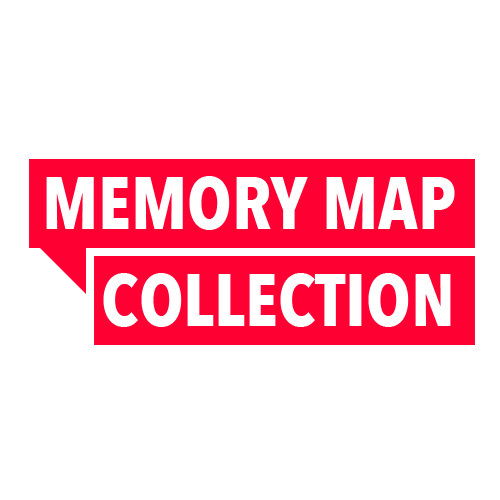Kevin Leahy: Gurranabraher, Irish Army, Docklands,
Title
Subject
Description
He remembers Blarney Street, and women who wore large petticoats and played ‘gadgets’ (accordions). He moved to Gurranabraher; and later to Farranree.
He talks about some childhood games he played, such as ‘Kick the Can’ (which he explains), steering cars, icing the road in winter to go skating.
He recalls being told in the 1940s not to play with children from families who had been informers during the Civil War.
He remembers the names of some of the lanes around Blarney Street. People in the area boiled crubeens, others sold flowers, all from the doorways of their houses.
Kevin talks about a local character called Damie Goggins.
How steernas were made.
Kevin’s mother (née Burke) sang thousands of songs, among them ‘The Irish Brigade’ (he sings a verse). His maternal grandmother was a formidable woman who liked to drink and fight.
There was a milk and cake shop, Mrs Cotter’s, in Blarney Street, where you got a pint of milk and a whole cake, the latter sometimes Donkey’s Drudge Cake.
Meeting the opposite sex had to be done on the sly.
He talks about the origin of the word ‘langer’.
Kevin joined the army and served in the Congo [early 1960s].
Women couldn’t drink in pubs, unless in snugs; men and women’s lives were completely separate. He explains that pubs closed at 7pm at night, after which men gathered, talked, sang and fought in the street until midnight.
As a child Kevin used to eat various sweets, ‘Munster Selection’, candy apples, twisted candy, ice cream.
He details the pranks he played as a child, slogging apples from the Sunbeam gardens, and how kids could sneak into the Lido cinema.
People kept animals, including goats.
He worked on the docks after he came out of the army, and talks a little about the work and the dockers he knew. He tells a funny story about meeting some visiting Americans.
Date
Identifier
Coverage
Relation
CFP_SR00387_sheehan_2010; CFP_SR00388_sheehan_2010; CFP_SR00389_healy_2010; CFP_SR00390_kelleher_2010; CFP_SR00391_crean_2010; CFP_SR00392_mckeon_2010; CFP_SR00393_twomey_2010; CFP_SR00394_stleger_2010; CFP_SR00395_speight_2010; CFP_SR00396_lane_2010; CFP_SR00397_obrienoleary_2010; CFP_SR00398_jones_2010; CFP_SR00399_saville_2010; CFP_SR00400_magnier_2010; CFP_SR00401_marshall_2010; CFP_SR00402_marshall_2010; CFP_SR00403_murphy_2010; CFP_SR00404_prout_2011; CFP_SR00405_walsh_2011; CFP_SR00406_prout_2011; CFP_SR00407_newman_2010; CFP_SR00408_newman_2010; CFP_SR00411_newman_2010; CFP_SR00412_newman_2010; CFP_SR00413_finn_2011; CFP_SR00414_ohorgain_2011; CFP_SR00415_oconnell_2011; CFP_SR00416_sheehy_2011; CFP_SR00417_mcloughlin_2012; CFP_SR00418_gerety_2012; CFP_SR00419_kelleher_2012; CFP_SR00420_byrne_2012; CFP_SR00421_cronin_2012; CFP_SR00422_ohuigin_2012; CFP_SR00423_meacle_2012; CFP_SR00424_horgan_2012; CFP_SR00425_lyons_2012; CFP_SR00427_goulding_2011;
CFP_SR00491_fitzgerald_2013.
Heritage Week 2011: CFP_SR00429_casey_2011; CFP_SR00430_tomas_2011; CFP_SR00431_newman_2011; CFP_SR00432_stillwell_2011; CFP_SR00433_oconnell_2011; CFP_SR00434_lane_2011; CFP_SR00435_montgomery-mcconville_2011; CFP_SR00436_ocallaghan_2011; CFP_SR00437_corcoran_2011; CFP_SR00438_jones_2011; CFP_SR00439_ohuigin_2011; CFP_SR00440_mccarthy_2011; CFP_SR00441_crowley_2011; CFP_SR00442_obrien_2011; CFP_SR00443_jones_2011; CFP_SR00444_mcgillicuddy_2011; CFP_SR00445_delay_2011; CFP_SR00446_murphy_2011;
Video Interview: CFP_VR00486_speight_2014
Published Material:
O’Carroll, Clíona (2011) ‘The Cork Memory Map’, Béascna 7: 184-188.
O’Carroll, Clíona (2012) ‘Cork Memory Map: an update on CFP’s Online Project’, The Archive 16: 14. https://www.ucc.ie/en/media/research/corkfolkloreproject/archivepdfs/archive16.PDF
Dee, Stephen and O’Carroll, Clíona (2012) ‘Sound Excerpts: Interviews from Heritage Week’, The Archive 16: 15-17. https://www.ucc.ie/en/media/research/corkfolkloreproject/archivepdfs/archive16.PDF
O'Carrol, Clíona (2014) 'The children's perspectives: Place-centred interviewing and multiple diversified livelihood strategies in Cork city, 1935-1960'. Béaloideas - The Journal of Folklore of Ireland Society, 82: 45-65.
The Curious Ear/Documentary on One (Cork City Memory Map) http://www.rte.ie/radio1/doconone/2011/0816/646858-curious-ear-doconone-cork-city-memory-map/
To view the Cork Memory Map Click Here
Source
Rights
Language
Type
Format
Interviewee
Interviewer
Duration
Location
Original Format
Bit Rate/Frequency
Transcription
K L: I didn’t, ah I left the plumbin’, I left the plumbin’ then. I joined the army then when I went out to the. I joined the army when I was eh, nineteen. An’ I went out to the Congo an’ I had great craic in the congo.’Twas very, Congo was very rough.’Twas all, we were off the planes then we went straight into trenches. Fightin’ a crowd called Tshombe’s Army an’ they were, ‘twas pretty hectic. A lot o’ bombin’ an’ shootin’ an’ killin’ one other.’Twas a desperate country very rough. It was, I was lookin’ at the telly there lately an’ it hasn’t changed a bit. Misfortunate people are still being terrorised and tortured.
H K: Were ye trained now properly for that?
K L: We trained for about three months for it. They say, the people who were training us didn’t know what they were training us for. We were good with, we had good guns. We had eh, Belgian rifles FN’s they were called an’ they were very very good. An’ we also had eh, Gustaffs. Gustaff was a highly dangerous gun ‘cos if you banged it off the wall ‘twould fire you know? Want to be very careful you wouldn’t load it as you probably use. You were goin’ to use it like. ’Twas good ole, I enjoyed that, I enjoyed, I enjoyed that the Congo ‘twas a good experience.
H K: For how long?
K L: I spent seven months there which was you must realise that’s this is back now a long time ago it’s back fifty years ago now an’ you see that time there was no travel. Most people lived an’ died in where they were born you know? They might go to twenty, thirty miles at the most an’ goin’ out seven thousand miles that t time ‘twas a fierce thing altogether like you know? (?) you were singin’, goin’ on to the planes we were goin’ out to the airport we, marchin’ on to the planes we were singin’ ‘it’s a long way to Tipperary’, an’ I didn’t even know where Tipperary was. At the time, I mean you know we go out to the Congo an’ we were singin’ about Tipperary I didn’t even know where Tipperary was [laughs] ‘cos I was never in Tipperary.
H K: Did ye have money so comin’ back?
K L: We got em, we got paid then outside. An’ (?) got paid here. An’ we got eh, I think I got about three hundred quid when I came home.
H K: I was. I got, I was married before I went away before I joined the army, very, very young. I married at nineteen. But ‘twas the best thing I did because otherwise, I’d have wound up, I’d probably be now, half-mad and I’d have to see she kept me sane like.

